| Year | Recipient | Image | Birth / death | State/organization | Description |
|---|
| 1986 | Parliamentarians for Global Action | – | (founded 1978) | – | International Organisation of Parliamentarians |
| 1987 [2] | Mikhail Gorbachev |  | (1931–2022) |  Soviet Union Soviet Union | Former Soviet Union leader |
| 1988 | Gro Harlem Brundtland |  | (born 1939) |  Norway Norway | Former Prime Minister of Norway |
| 1989 | UNICEF |  | (founded 1946) |  United Nations United Nations | United Nations Children's Emergency Fund |
| 1990 | Sam Nujoma |  | (1929–2025) |  Namibia Namibia | First president of Namibia |
| 1991 | Rajiv Gandhi |  | (1944–1991) |  India India | Former Prime Minister of India (posthumous) |
| 1992 | Saburo Okita |  | (1914–1993) |  Japan Japan | Japanese economist |
| 1993 [3] | Václav Havel |  | (1936–2011) |  Czech Republic Czech Republic | 1st president of the Czech Republic |
| 1994 [4] | Trevor Huddleston |  | (1913–1998) |  United Kingdom United Kingdom | Anti-Apartheid activist |
| 1995 [5] | Olusegun Obasanjo |  | (born 1937) |  Nigeria Nigeria | 12th president of Nigeria |
| 1996 [6] | Médecins Sans Frontières |  | (founded 1971) |  France France | Voluntary organisation |
| 1997 [7] | Jimmy Carter |  | (1924–2024) |  United States United States | 39th president of the United States |
| 1998 [8] | Muhammad Yunus |  | (born 1940) |  Bangladesh Bangladesh | Founder of Grameen Bank |
| 1999 [9] | M. S. Swaminathan |  | (1925–2023) |  India India | Indian agricultural scientist |
| 2000 [10] | Mary Robinson |  | (born 1944) |  Ireland Ireland | 7th president of Ireland |
| 2001 [11] | Sadako Ogata |  | (1927–2019) |  Japan Japan | Former United Nations High Commissioner for Refugees |
| 2002 [12] | Shridath Ramphal | 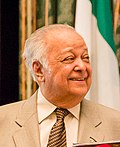 | (1928–2024) |  Guyana Guyana | 2nd Commonwealth Secretary-General |
| 2003 [13] | Kofi Annan | 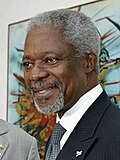 | (1938–2018) |  Ghana Ghana | 7th United Nations Secretary General |
| 2004 [14] [15] | Maha Chakri Sirindhorn | 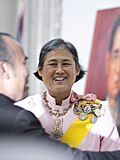 | (born 1955) |  Thailand Thailand | Princess of Thailand |
| 2005 [15] | Hamid Karzai |  | (born 1957) |  Afghanistan Afghanistan | 12th president of Afghanistan |
| 2006 [16] | Wangari Maathai |  | (1940–2011) |  Kenya Kenya | Environmental and political activist |
| 2007 [17] | Bill & Melinda Gates Foundation |  | (founded 1994) |  United States United States | Charitable foundation |
| 2008 [18] | Mohamed ElBaradei | 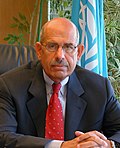 | (born 1942) |  Egypt Egypt | 4th director general of the IAEA |
| 2009 [19] | Sheikh Hasina |  | (born 1947) |  Bangladesh Bangladesh | Prime Minister of Bangladesh |
| 2010 [20] | Luiz Inácio Lula da Silva |  | (born 1945) |  Brazil Brazil | Current President of Brazil |
| 2011 [21] | Ela Bhatt |  | (1933–2022) |  India India | Founder of SEWA |
| 2012 [22] | Ellen Johnson Sirleaf |  | (born 1938) |  Liberia Liberia | President of Liberia |
| 2013 [23] | Angela Merkel |  | (born 1954) |  Germany Germany | Chancellor of Germany |
| 2014 [24] | ISRO |  | (founded 1969) |  India India | Indian space agency |
| 2015 [25] | UNHCR | 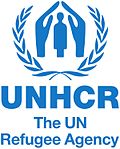 | (founded 1950 |  United Nations United Nations | United Nations High Commissioner for Refugees |
| 2017 [1] | Manmohan Singh |  | (1932–2024) |  India India | Former Prime Minister, Finance Minister, and Governor of the Reserve Bank of India |
| 2018 [26] | Centre for Science and Environment | | (founded 1980) |  India India | Not-for-profit public interest research and advocacy organisation based in New Delhi, India |
| 2019 [27] | David Attenborough |  | (born 1926) |  United Kingdom United Kingdom | English broadcaster and natural historian |
| 2021 [28] | Pratham | | (founded 1995) |  India India | Not-for-profit learning organization created to improve the quality of education based in India |
| 2022 [29] | Indian Medical Association | | (founded 1928) |  India India | The award was for every doctor, nurse, paramedic, and worker for their service during the COVID-19 pandemic. |
| Trained Nurses Association of India | – | (founded 1917) |
| 2023 [30] | Ali Abu Awwad |  | (born 1972) |  State of Palestine State of Palestine | Awwad is a peace activist and Maestro Barenboim is an Argentine-born classical pianist. |
| Daniel Barenboim |  | (born 1942) |  Argentina Argentina |
| 2024 [31] | Michelle Bachelet |  | (born 1951) |  Chile Chile | Former president of Chile, former UN High Commissioner for Human Rights, former executive director of UN Women |
































